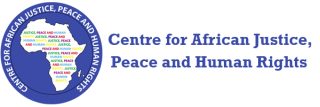By Kean Smith
8 November, 2020
“World Toilet Day, [every 19 November], celebrates toilets and raises awareness … of people living without access to safely managed sanitation. It is about taking action to tackle the global sanitation crisis and achieve Sustainable Development Goal 6: water and sanitation for all by 2030.” 1
In this short article, I will share some information that show why I believe it is necessary to celebrate toilets and raise awareness of people, particularly children, living without access to safely managed sanitation. Also, I will touch on how it impacts their access to education
especially in Uganda where the CAJPHR 2 is planning a school WASH (Water Sanitation and Hygiene) project.
According to the following statistics from the United Nations, the inadequacy of poor sanitation
and unsafe drinking water is significant:
- Over half of the global population or 4.2 billion people lack safe sanitation;
- 40% – or three billion people – of the global population live without basic handwashing
- facilities with soap and water available at home;
- Around 297,000 children under five – more than 800 every day – die annually from diarrheal diseases due to poor hygiene, poor sanitation or unsafe drinking water;
- Globally, 80% of the wastewater generated by society flows back into the ecosystem without being treated or reused; and
- By 2050, up to 5.7 billion people could be living in areas where water is scarce for at least one month a year, creating unprecedented competition for water.
These global statistics are sobering and deserve great attention. Having a World Toilet Day to highlight and focus on this pressing issue of a lack of sanitation is sensible when the statistics show that 4.2 billion people, representing 53.88% of the global population, lack safe sanitation.
As you may be aware, in September 2015, the United Nations General Assembly adopted the 2030 Agenda for Sustainable Development that includes 17 Sustainable Development Goals (SDGs). The Right to Quality Education Team focuses on Goal 4 (Ensure inclusive and
equitable quality education and promote lifelong learning opportunities for all) and Goal 6 (Ensure availability and sustainable management of water and sanitation for all).
With a total population of 45.7 3 million people, Uganda is an independent country located in east-central Africa. According to the UNICEF Uganda Annual Report 2019, poor sanitation and hygiene, as well as unequal access to safe drinking water, make thousands of children very sick and at risk of death. In most cases, children get diarrhea by drinking unsafe water or coming into contact with contaminated hands — theirs or parents or caregivers — that have not been washed with soap. In Uganda, diarrhea kills 33 children every day.
“In Uganda, diarrhea kills 33 children every day.”
– UNICEF Uganda Annual Report 2019
In schools, lack of proper sanitation facilities also leads to high absenteeism. In addition to students missing school for 5 – 7 days to recover from diarrhea, the student’s family may have to spend money on medical care or medication to help treat this disease. The impact on parents and their children’s lives is compounded because it is likely that children may contract the disease multiple times per year because in Uganda two thirds of households do not wash with soap. 4
The lack of proper sanitation and hand wash facilities in schools put students, School Administrators and Staff at increased risk of bacteria and virial infection like diarrhea and COVID-19. According to UNICEF, more attention is being given to addressing this lack of
sanitation issue in Uganda because The Ministry of Education and Sports created the first-ever budget line for WASH in its annual budget for the financial year July 2019/2020. 5
- World Toilet Day | United Nations. 2020. Available at: https://www.un.org/en/observances/toilet-day [Accessed: 5 November 2020].2 The Centre for African Justice, Peace and Human Rights
- The Centre for African Justice, Peace and Human Rights
- UNFPA – United Nations Population Fund. 2020. Available at: https://www.unfpa.org/data/world-population/UG [Accessed: 6 November 2020].
- Water, sanitation and hygiene (WASH). 2018. Available at: https://www.unicef.org/uganda/what-we-do/wash [Accessed: 6
November 2020]. - UNICEF Uganda Annual Report 2019 2019. UNICEF., p. 13. Available at: https://www.unicef.org/uganda/media/6806/file/UNICEF_UgandaAR2019-WEBhighres.pdf [Accessed: 6 November 2020].
